Krøgenes
About
Krøgenes is a car-based district center in Arendal municipality that has found itself in a strategic position facing an upcoming era of transition. Consisting mainly of big box retailers, warehouse facilities, parking lots as well as an industry today, the area sits in the middle of several existing and planned developments. One of the most significant developments is the new battery factory, now under construction just to the north of the site. The factory will create more than 2500 new jobs and attract an estimated 6500 new inhabitants to the immediate area.
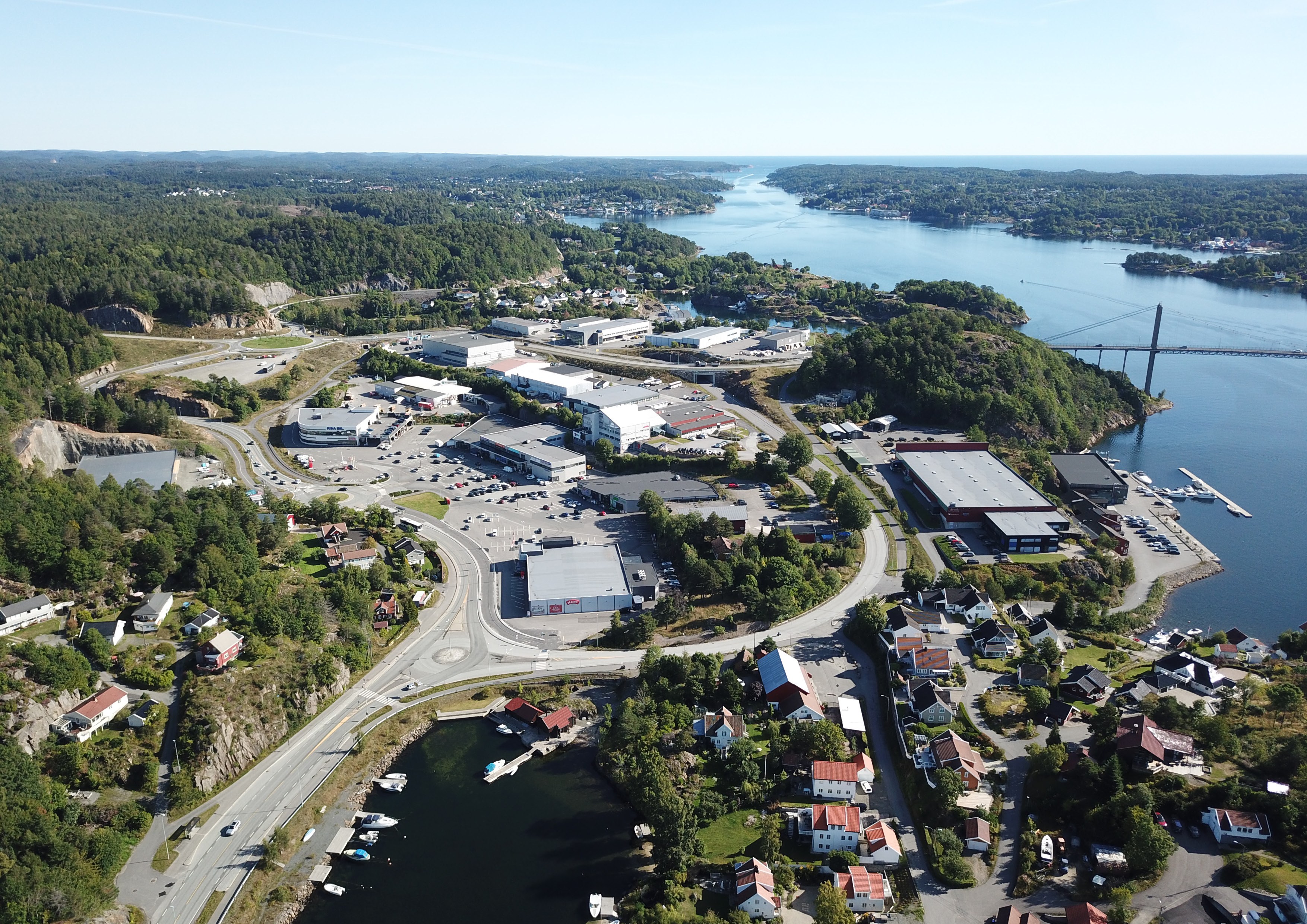
With thousands of new inhabitants moving into the Krøgenes area over the next few years the area needs a strategic approach to urban development. The scale of the changes will stretch the capacity of the municipality in terms of capital, planning resources, and care services. The challenge is to ensure sufficiently rapid construction while maintaining social sustainability in planning for the structural social changes that come with so many new inhabitants. The success of the transformation will largely hinge on productive collaboration with local businesses, civil society, and inhabitants, a type of co-creation Arendal has developed successfully over the past decade.
By stimulating collaboration between local forces, Arendal aims to trigger local initiatives and new sustainable solutions. What processes and interventions could help imbue Krøgenes with a strong identity, increase well-being and belonging, as well as open possibilities for climate-friendly mobility?
The development of smaller, compact local centres is a key strategy for reducing greenhouse gas emissions in the municipality’s Regional Spatial and Transport Plan. Krøgenes exemplifies the main challenges Arendal faces in order to realise this strategy. The prevalence of monofunctional car-based trade areas detached from their surroundings, lack of pedestrian and bicycle connections and low housing qualities all provide tangible starting points on the path towards developing a better Krøgenes.
Arendal has entered Europan 17 to find ways to develop the Krøgenes area into a vibrant local and well-connected urban centre. Innovative forms of mobility and regenerative typologies of public space, housing and services can all be leveraged in the case of Krøgenes to create value for both the climate and local economy. How can the development be tuned so that it provides the care needed for the existing local community and the even stronger, robust sense of care, community, and accessibility that will make the new inhabitants feel at home?
Task
Make a proposal for a holistic intensification and transformation of Krøgenes into a well-connected, local urban centre that supports the needs of the growing population that comes with the new battery factory and associated industries. Do also take into account the needs of the existing communities of neighbors and local businesses. Show how the proposal would work in the immediate, medium, and long term.
Arendal municipality wants proposals of urban design and programming that are visionary in terms of regenerative capabilities, urban typologies, sustainable building practices, mobility, and social sustainability. The municipality also wants feasible processes for how to engage local actors, businesses, and civil society in the transformation.
Consider feasibility and economic sustainability. Without private-public partnerships, a successful transformation is not possible. Provide meeting points, recreation, ocean access, culture, and shopping.
Foster regenerative practices and climate resilience. Improve the livability and intensification of human use. Make a regenerative environment that can help heal and recreate some of the area’s natural habitats.
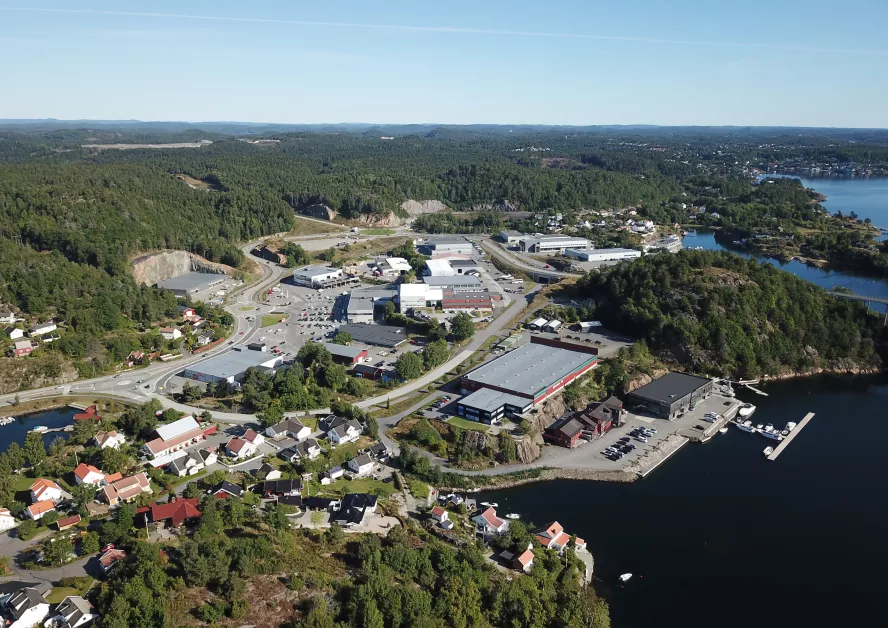
Site facts
- Location
- Arendal
- Population:
- 45 891 inhabitants
- Scale
- Large
- Project site
- 42 ha
- Prize
- 1st prize: 12 000 EUR, 2nd prize: 6 000 EUR
- Commission
- Two workshops and feasibility studies with a total value of approx. 500 000 NOK. + possibilities of negotiated work from stakeholders/private developers.
Submitted projects
-
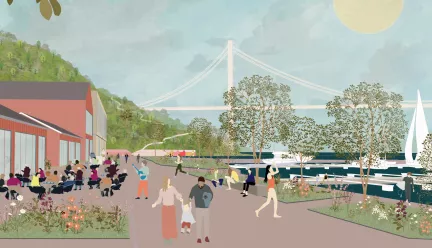
Sea you in Krøgenes
Our ambition is to develop Krøgenes into a vibrant local centre, where public spaces connect…
-
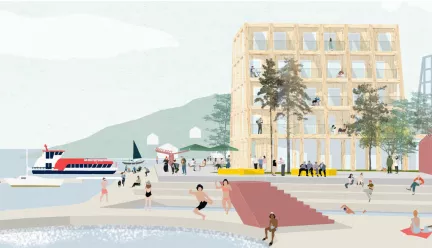
Co-Krøgenes
The concept of co-krøgenes sees the solution in an approach that focuses on the community, the…
-
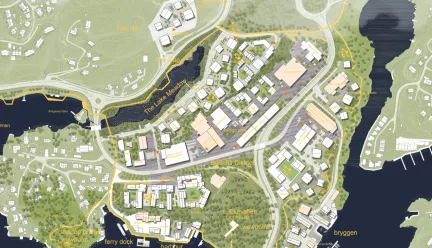
Krøgenes peninsula
We propose to reestablish the old lake, creating a lush lake meadow as an entry point to Krøgenes.
-
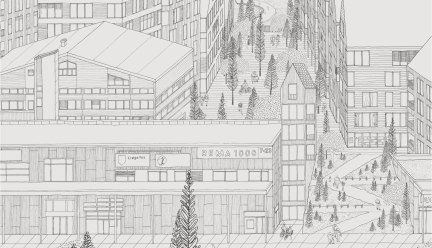
The ideal city
Nobody likes car-orientated big-box urbanism. Its cheap architecture and unthought urban fabric are…
-
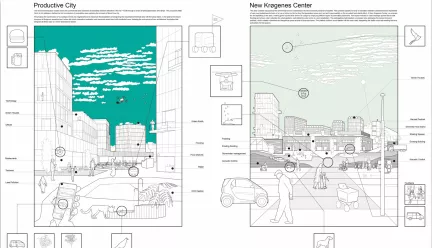
Knitting Krøgenes
The proposal envisions a patchwork urbanism as a kind of needlework, involving sewing together…
-
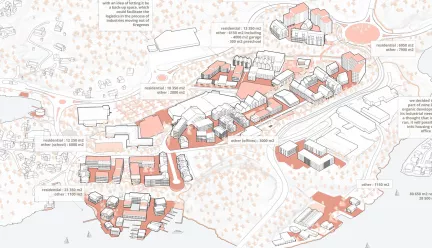
Past forward
Our proposal considers Krøgenes’ industrial heritage, while embracing sustainable progress.
-

Past forward
Our proposal considers Krøgenes’ industrial heritage, while embracing sustainable progress.
-
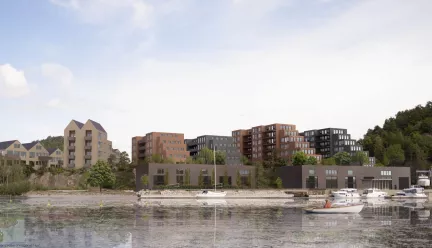
Weaving a future
Making courageous and clever decisions today will make it the obvious hub of skill and competence…
-
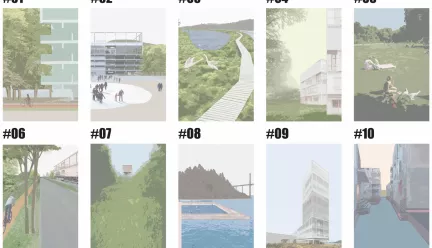
I love Krøgenes
Behind the project lies the followed methodology to do so: the main land has been divided in 10…
-
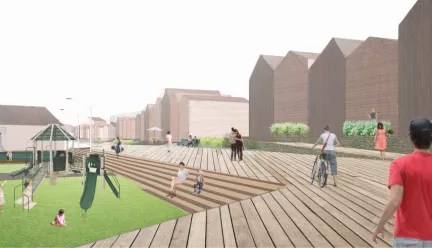
Krøgenes accretion
The idea of accretion is that something is added onto or next to something that already exists, it…
-
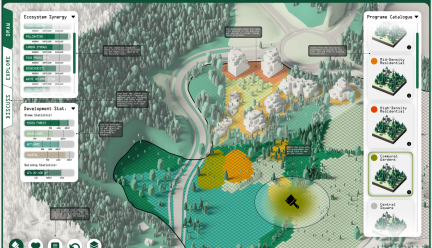
Rebuilding with biomes
A master process approach combines fixed infrastructure with flexible infills, adapting to complex…